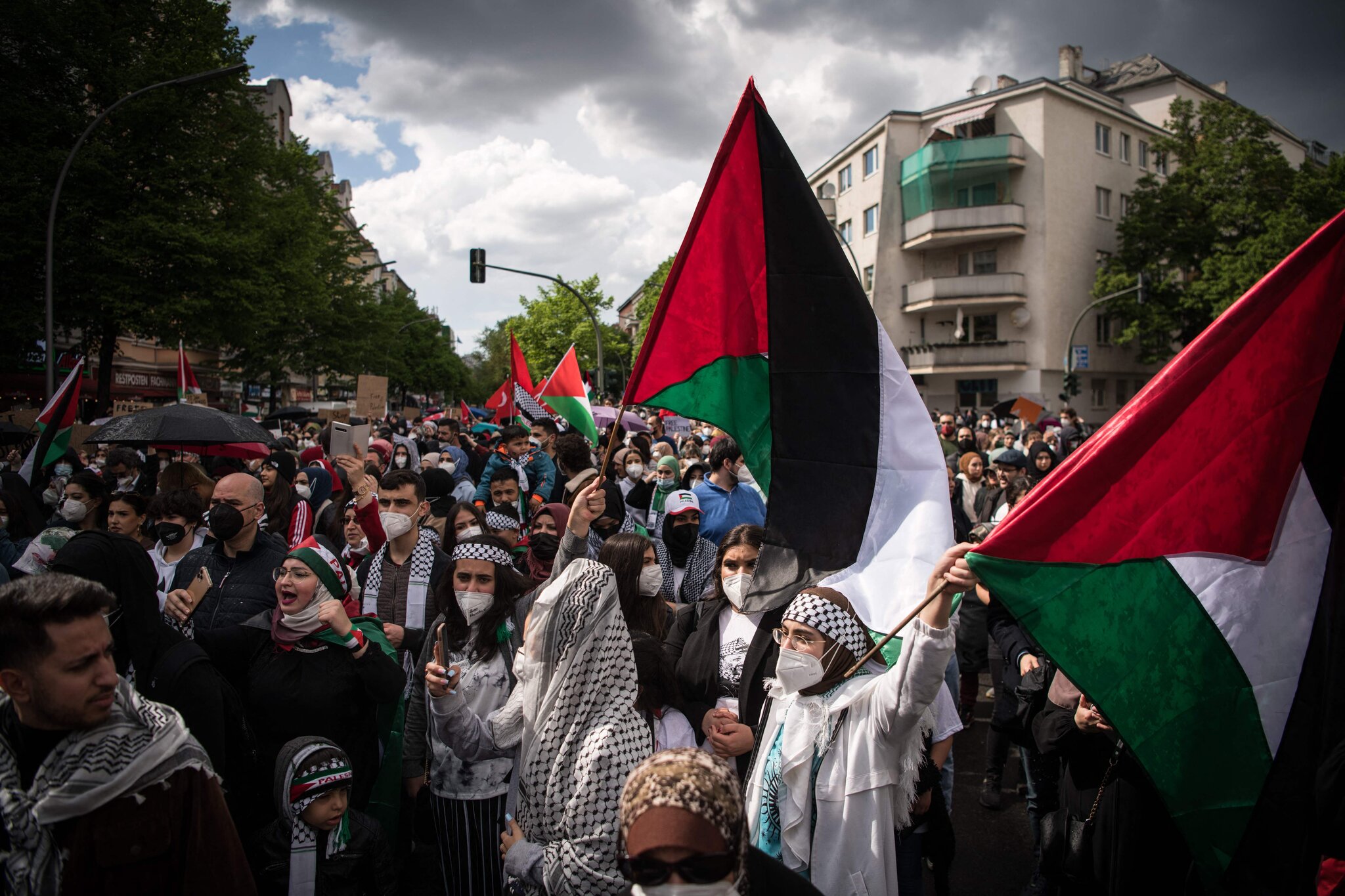


As the ongoing conflict between Israel and Hamas continues to devastate the Gaza Strip, international pressure is mounting for a ceasefire. In a joint statement, leaders from Britain, France, and Germany urged an immediate end to the fighting and called for the release of hostages held by Hamas. They also emphasized the urgent need for aid to be delivered and distributed to the people of Gaza.
The Gaza Strip: A History of Conflict and Ceasefire Calls
Background
The Gaza Strip, a small coastal territory on the Mediterranean Sea, has been a flashpoint of conflict between Israelis and Palestinians for decades. Israel captured Gaza during the 1967 Six-Day War, and the area has been under Israeli occupation ever since. Palestinians, who make up the vast majority of Gaza's population, seek to establish an independent state in the territory.
Hamas and the Conflict
Hamas, an Islamist militant group designated as a terrorist organization by several countries, has controlled Gaza since 2007. Hamas has launched numerous rocket attacks on Israel from Gaza, prompting Israeli military responses. These cycles of violence have resulted in thousands of Palestinian and Israeli casualties, as well as widespread destruction in Gaza.
Current Conflict and Ceasefire Calls
The latest round of fighting between Israel and Hamas began in May 2021, sparked by tensions over Muslim prayers at the Al-Aqsa Mosque in Jerusalem. The conflict has resulted in hundreds of deaths and injuries on both sides.
International pressure for a ceasefire has been mounting. The United States, the United Kingdom, France, and other nations have called for an immediate end to the fighting. The United Nations Security Council has held several emergency meetings to address the crisis.
Top 5 FAQs and Answers
1. What is the root cause of the conflict between Israel and Palestinians?
The conflict is rooted in historical, political, and religious grievances, including the unresolved issue of Palestinian statehood and the status of Jerusalem.
2. Why does Hamas fire rockets into Israel?
Hamas has argued that its rocket attacks are in response to Israeli aggression and the ongoing occupation of Palestinian territories.
3. What are the humanitarian consequences of the conflict?
The fighting has caused widespread damage to civilian infrastructure in Gaza, including hospitals, schools, and homes. Tens of thousands of Palestinians have been displaced from their homes.
4. What is the international community doing to resolve the conflict?
The international community has called for a ceasefire and is working to facilitate negotiations between Israel and Hamas.
5. What is the future of the Gaza Strip?
The future of Gaza remains uncertain. The status quo of Israeli occupation and Hamas control is unsustainable. A lasting solution will require a comprehensive peace agreement that addresses the underlying causes of the conflict and guarantees the rights of both Israelis and Palestinians.

Pakistan's Prime Minister, Shehbaz Sharif, caused a major stir in Turkmenistan when he decided to gate-crash a meeting between Russian President Vladimir Putin and Turkish President Recep Tayyip Erdogan after waiting for 40 minutes. This impulsive move showcases Pakistan's increasing diplomatic insecurity and diminishing geopolitical clout. As Sharif struggles to secure meaningful engagements with major powers, he also faces domestic crises and is under the control of Army Chief Asim Munir. Meanwhile, the event in Turkmenistan marked a milestone for the country's declaration of neutrality and its efforts to maintain independence from both Western and Russian influence.

During an international forum in Turkmenistan, Pakistan's Prime Minister Shehbaz Sharif faced an embarrassing diplomatic moment as he walked into a private meeting between Russian President Vladimir Putin and Turkish President Recep Tayyip Erdogan. Sharif had been waiting for over 40 minutes for his scheduled meeting with Putin, causing him to enter the ongoing conversation between the two leaders. The incident, captured on video and shared by RT India, has triggered widespread mockery on social media with users making jokes about Sharif's actions. This comes as Pakistan attempts to strengthen its ties with Russia, while Putin maintains a closer relationship with India.

The latest bout of border fighting between Thailand and Cambodia has escalated, with hundreds of thousands of civilians displaced and casualties on both sides. The renewed skirmishes have shattered a ceasefire proposed by U.S. President Donald Trump in July. The leaders of both countries have promised to continue their aggressive stance, causing further tension and concerns for the safety of civilians. This has even resulted in the withdrawal of Cambodia's team from a regional sporting event.

Notorious Naxalite commander Ramdher Majji, along with his group, surrendered to the police in Chhattisgarh. This surrender marks a milestone in the fight against Naxalism, as the state's Deputy Chief Minister states that 80 percent of the menace has been eradicated. With the government's resolved aim to eliminate Naxalism by 2026, the country is heading towards a permanent solution to this long-standing issue. Home Minister Amit Shah also noted the significant progress made in reducing Naxal violence, with only 10 percent of the nation's population currently affected compared to 120 million people in the past.

After the tragic fire at their club in Goa, owners Gaurav and Saurabh Luthra have been detained in Thailand and are expected to be brought back to India soon. The Indian agencies have been in constant communication with Thai authorities and have managed to locate the brothers outside the main city area. With their detention, the process for their deportation has been initiated and Indian agencies are coordinating with Thai authorities for their return. The article also explains the general procedure for deportation of foreigners from Thailand under immigration laws.

Two years after the shocking death of Dawn Sturgess from Novichok poisoning, a public inquiry has released its final report. The report, overseen by retired Supreme Court justice Lord Hughes of Ombersley, examined whether British officials had taken adequate precautions to prevent the attack on ex-spy Sergei Skripal and his daughter Yulia in March 2018. The inquiry also investigated whether Ms. Sturgess's death could have been avoided with timely public warnings about abandoned objects. Good Morning Britain correspondent Richard Gaisford reported live from Salisbury, where the attack first came to light, to reveal the disturbing findings of the inquiry.

The Indian Air Force (IAF) has found a solution to maintain its aging Jaguar fleet by obtaining over 20 retired aircraft from the Oman Air Force. These jets will be dismantled and used as spares, as global production of Jaguar has ceased. With this transfer, India will become one of the few countries to still operate the Anglo-French supersonic attack aircraft. The collaboration between India and Oman in this regard reflects their robust defense partnership.

In a monumental decision, UNESCO has officially named India's beloved festival of lights, Deepavali, to its prestigious Intangible Cultural Heritage List during a committee meeting at the iconic Red Fort in Delhi. The news was met with joyous celebrations and performances, with Prime Minister Modi expressing his pride and noting the global impact of Deepavali's inclusion. This marks the sixteenth element from India to be inscribed on the Representative List, solidifying the country's rich cultural heritage.

India's festival of lights, Deepavali, has been added to Unesco's list of Intangible Cultural Heritage, following in the footsteps of Durga Puja. Prime Minister Narendra Modi expressed his delight at the nomination, stating that the festival is closely tied to India's culture and ethos. The nomination process for Deepavali involved diverse communities and experts, showcasing the festival's reach beyond the country, as it joins India's 15 elements already on Unesco's list.

The Telangana Rising Global Summit 2025 kicked off at Bharat Future City with an impressive lineup of guests, including Chief Guest Governor Jishnu Dev Verma and film actor Nagarjuna. Attendees were impressed by the interactive robot welcoming guests and Chief Minister Revanth Reddy, who was accompanied by actor Nagarjuna. The summit also saw the presence of national and international dignitaries, making it a star-studded event. To add to the festive atmosphere, a specially composed song celebrating Telangana Rising was also featured during the opening ceremony.